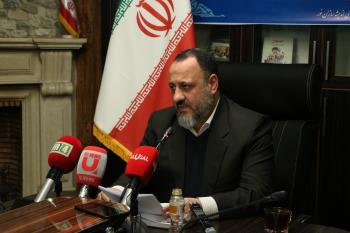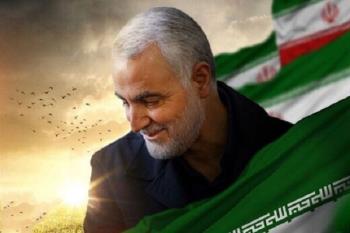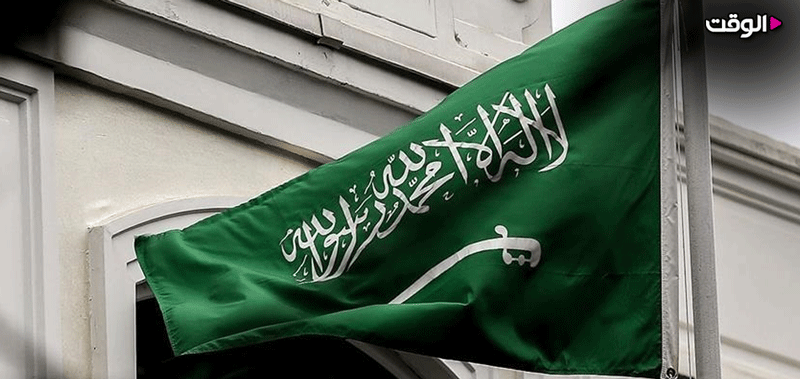Alwaght- According to Arab sources, recently a number of Saudi diplomats that last year left Beirut following tensions with Lebanon have returned to the city to prepare the ground for return of the Saudi ambassador Walid Bukhari. The move is coming amid reports that the Arab kingdom has recently started a distribution of humanitarian aids in Lebanon.
The de-escalation efforts follow months of a diplomatic row caused by Lebanese Information Minister George Kordahi condemning in an interview Saudi war on Yemen. Riyadh recalled its ambassador to Beirut on October 29, two days after the voice tape of Kordahi– who had made the comments before assuming the ministry post – was published. In the same day, the kingdom expelled the Lebanese ambassador and banned all imports and exports to Lebanon.
Although these tensions were initially limited to Saudi Arabia and Lebanon, other (Persian) Gulf Cooperation Council countries (except for Oman) gradually expressed their Saudi-style reactions to Lebanon, with Emirati, Bahraini, and Kuwaiti rulers having Lebanese ambassadors expelled from their country.
Lebanese Prime Minister Najib Mikati made a great deal of efforts to defuse tensions after Saudi Arabia and some other Arab countries severed ties with Lebanon. Even the resignation of Kordahi could not normalize relations with the Persian Gulf states. Even in January, Kuwait presented a plan for reconciliation between the two countries, which included several conditions, among them implementation of the Taif Agreement of 1989 and the implementation of international Security Council resolutions, in particular the special resolution on the disarmament of armed groups in Lebanon, the 1980 resolution on Lebanon's sovereignty, it's regional health and political independence, and the resolution 1701 on the cessation of all hostilities between Lebanon and the Israeli regime approved following the 2006 war.
Despite raising these preconditions and also Saudi insistence on continuing severed ties with Lebanon, the question is why the Saudis have returned the diplomats to Beirut without a meaningful reaction from PM Mikati's government regarding implementation of the conditions and demands? Has Riyadh backed down from its demands or does it have a particular plan for Lebanon as the general elections approach?
Failure of crisis-making policy in Lebanon
In the past few years, Saudi interference in Lebanon's internal affairs has been an undeniable issue. In recent years, the Saudis have made great efforts to shape the political scene in Lebanon through huge petrodollars spending and focusing on election engineering. But the election results, as well as the field equations in Lebanese politics and governance, are clearly in stark contrast to the desire of the Saudi rulers.
Seeing its Lebanon policy disgracefully failing, the Saudi regime resorted to an obstructionist approach inside Lebanon with the aim of creating crisis. The outcome was a domino of Lebanese cabinet resignations and a failure to form government for months. Despite all the political pressures imposed by Riyadh and the obstruction of the government formation by the Lebanese groups affiliated with Riyadh, on September 10, 2021 a new cabinet was formed headed by Mikati. Believing that the new cabinet was overshadowed by the power of Hezbollah and its allies, the Saudis designed their plans on opposition to the new government. Therefore, the remarks of Kordahi were just a pretext making a path for the Saudis to launch their destabilizing policy in Lebanon.
Along with political pressures, Riyadh embarked on a policy of anti-Lebanese sanctions. Aware that Lebanon is the world's largest indebted state and under the US and EU sanctions with the aim of identifying Hezbollah financial network, the Saudis stepped up their pressures to tighten the noose on Beirut. Other measures included incitement of their allied armed militias to act against Hezbollah and launch terrorist attacks on civilians supporting Hezbollah politically.
But the defeat of multi-stage plot by smart and sophisticated reactions of Hezbollah chief Sayyed Hassan Nasrallah caused the Saudis to retreat, at least for now, from their plots and reopen their embassy in order to save their toehold in Lebanon and not to leave management of developments to the rival side.
Bracing for elections
One considerable point about Saudi Arabia reopening its embassy in Beirut is its coincidence with the approaching parliamentary elections. According to a decree from President Michel Aoun, the vote will be held on May 15. About 40 days to the elections, the Saudis are meaningfully resorting to de-escalation efforts and reestablishment of diplomatic relations with Lebanon.
The Saudi return to Lebanon is while Riyadh allies in March 14 Alliance and Future Party, led by Saad Hariri, are at a deep discord over whether to boycott the vote or take part in it. In the middle of crisis inside the camp of their allies, the Saudis are seeing their position on a shaky foundation more than ever and predicting the opposite Hezbollah-led March 8 Alliance victory.
Therefore, Riyadh rulers have decided to reopen their diplomatic centers in Lebanon to organize the ranks of their proxies to steer clear of defeat.



























